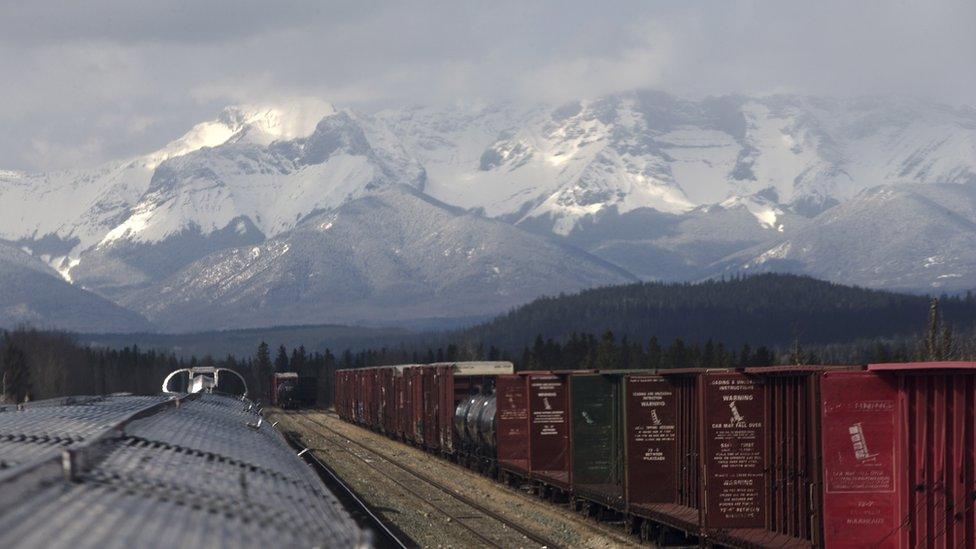Canada police move to clear rail blockade at Tyendinaga
- Published
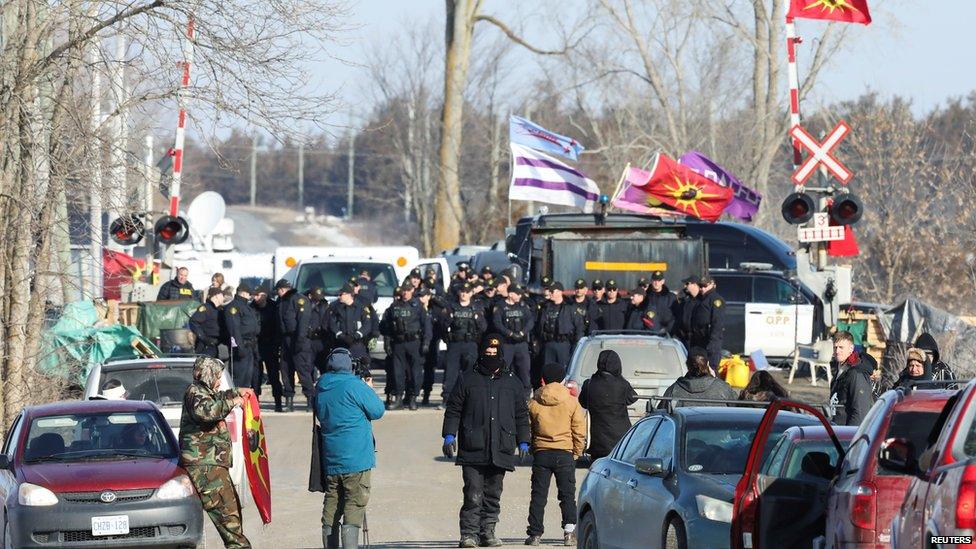
Canadian police have moved in to clear a key blockade that has stopped rail transport across the country.
Members of the Mohawk First Nation erected the blockade in Tyendinaga, Ontario, in solidarity with another tribe's conflict over a pipeline.
It has cut off major cross-country train routes, and led to about 1,500 temporary layoffs and supply shortages.
The conflict began over opposition to a pipeline, but it is also about broader issues like indigenous land rights.
Police are enforcing a court injunction that was ordered earlier this month on behalf of CN Rail.
They arrested 10 people on Monday morning. All have been charged and released from police custody.
The blockade was erected on 6 February in solidarity with Wet'suwet'en hereditary chiefs, who had been trying to stop construction of a gas pipeline through their traditional territory in British Columbia.
On Friday, Justin Trudeau said the blockades "must come down and the [court] injunctions much be obeyed and the law must be upheld".
Police have up until now avoided using force.
Members of the Mohawk nation met Wet'suwet'en hereditary chiefs on Friday, and reiterated their solidarity.
Mohawk representatives say they will end the blockade only if the RCMP completely leave Wet'suwet'en territory.
What is the background?
The Coastal GasLink pipeline is a 670km (416 miles) project that would ship natural gas from north-eastern parts of BC to the coast.
The C$6.6bn ($4.9bn, £3.8bn) project, in a remote part of the province a full day's drive from Vancouver, has been in the works since 2012.
Coastal GasLink has reached deals with 20 elected indigenous councils along the route, including some Wet'suwet'en councils.
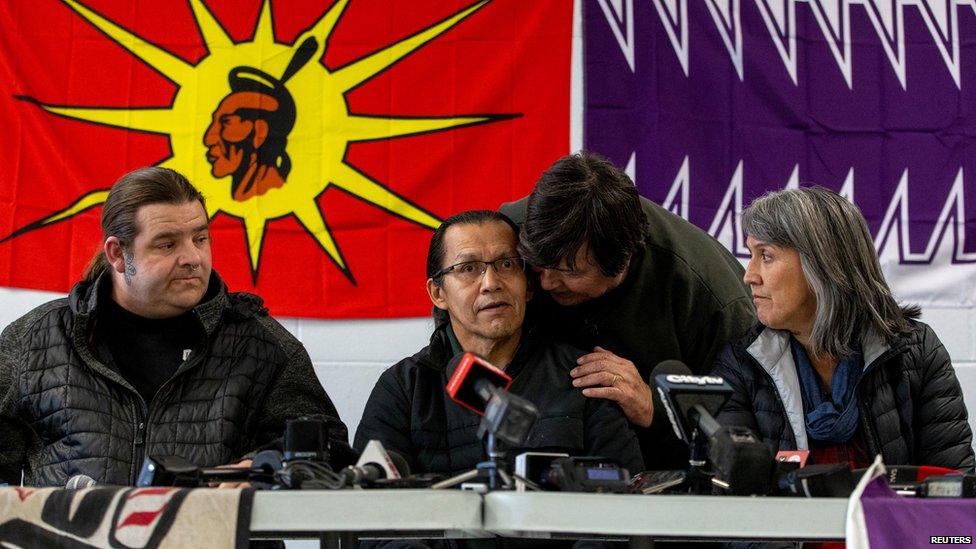
Members of the Mohawk nation met with Wet'suwet'en hereditary chiefs on Friday to reiterate their support
Training, employment and community investment forms part of the agreements.
But Wet'suwet'en hereditary chiefs oppose it and claim they hold authority over a bigger expanse of traditional lands, not just reserve land, over which the elected councils have no jurisdiction.
It's not clear exactly how much support there is within the broader Wet'suwet'en community for the pipeline or the protests, though some have told the media there are splits within the community.
For years, protesters have erected camps along the proposed pipeline route to prevent access to construction sites.
In early February, the Royal Canadian Mounted Police (RCMP) enforced a court injunction and cleared the camps, arresting people in the process.
Meanwhile, other blockades and protests have sprung up across the country in solidarity with Wet'suwet'en hereditary chiefs, including the blockade in Tyendinaga, disrupting rail lines, ports and highways.
What is the impact?
The Tyendinaga blockade is located near Belleville, Ontario, at a key intersection for trains travelling from the east through major cities like Montreal and Toronto.
It has essentially ground Canada's cross-country rail system to a halt, led to almost 1,500 temporary layoffs of rail workers and to growing concerns about supply shortages.
More broadly, there is growing concern that the demonstrations will discourage future investment from energy companies.
On Sunday, Teck Resources Ltd withdrew its application to build a C$20bn (TK) mine in Alberta's oilsands.
The federal government was supposed to make its decision on whether to approve the project this week.
Tech's CEO Don Lindsay citied the ongoing climate debate as the reason why he has decided not to build the mine in his letter to environment minister Jonathan Wilkinson.
"Unfortunately, the growing debate around this issue has placed Frontier and our company squarely at the nexus of much broader issues that need to be resolved. In that context, it is now evident that there is no constructive path forward for the project," Mr Lindsay wrote.
"It is our hope that withdrawing from the process will allow Canadians to shift to a larger and more positive discussion about the path forward. Ultimately, that should take place without a looming regulatory deadline."
- Published21 February 2020
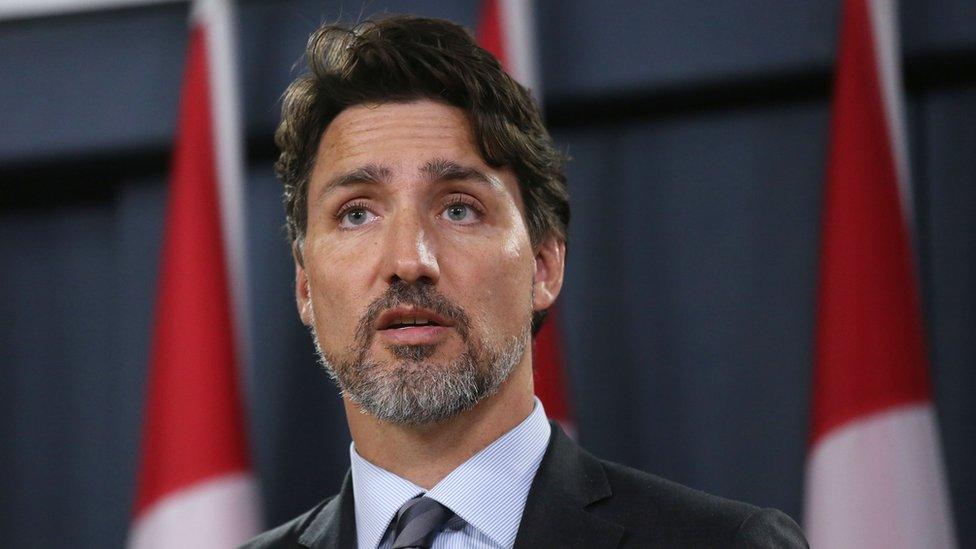
- Published14 February 2020
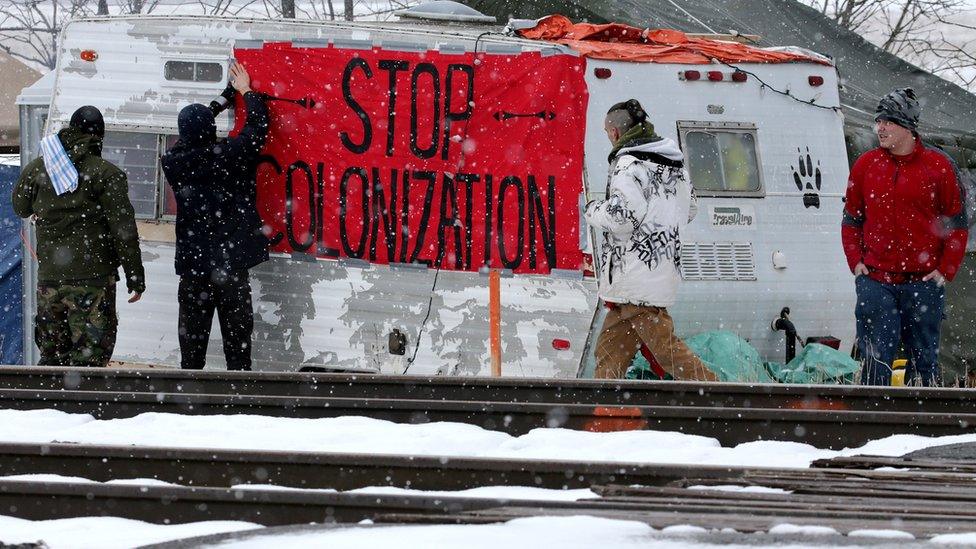
- Published13 February 2020
